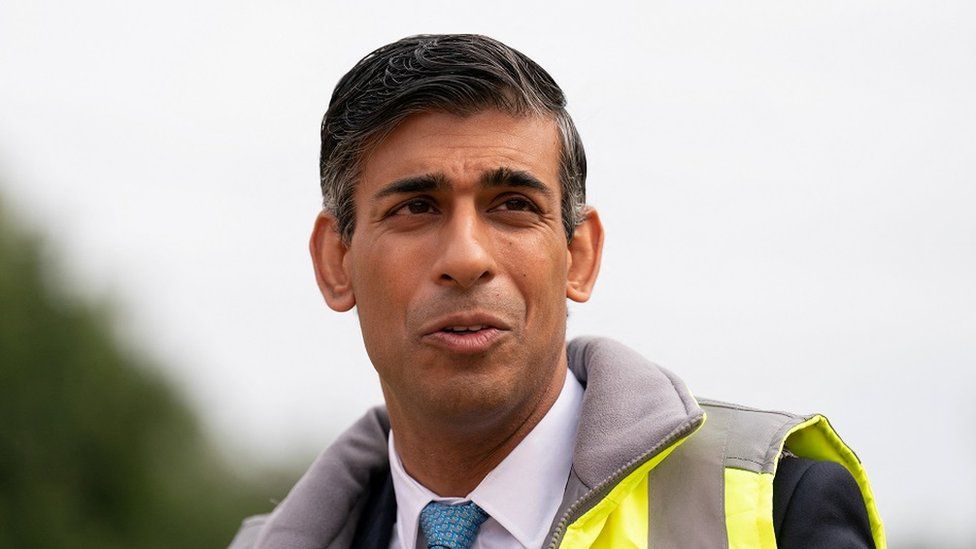ARTICLE AD BOX
 Image source, Reuters
Image source, Reuters
By Chris Mason
Political editor, BBC News
The government's utility man has a new job.
Grant Shapps has been appointed defence secretary, to replace Ben Wallace, meaning he has a new brief to mug up on.
But Mr Shapps is used to mugging up on new briefs.
This time last year he was transport secretary. Then he was home secretary, for a week.
And then, in October, he became business secretary, before becoming energy secretary in February.
The thinking in Downing Street in giving him the defence job boils down to three things.
It isn't just his five jobs in the past year.
He was a minister way back in 2010 when David Cameron became prime minister.
"He picked up the energy secretary job and ran with it," as one source put it to me.
And thirdly, the attribute so often associated with Mr Shapps: he is seen as a very effective communicator.
National security
It turns out there was a bit of a clue in plain sight about Grant Shapps' new gig: he was in Ukraine last week, to highlight the UK government's role in guaranteeing a supply of enriched uranium to the country's nuclear power plants.
It is another argument his supporters make about his suitability for this role.
Energy security, his old job, is ultimately about national security. And so is defence secretary.
Image source, PA Media
Image caption,Grant Shapps visited Ukraine last week
But not everyone is happy.
One minister texted me aghast, on hearing of Mr Shapps' latest role.
"So we've gone for media over capabilities. The minister for the Today Programme is the minister for defence."
It has also been suggested to me that "the military are very nervous" about the appointment.
Others are more positive.
One senior figure said Mr Shapps was "the right calibre" for the job and a "grown up" and, as an outsider, will be dispassionate about the various armed forces, as opposed to having a favourite.
Spending cuts
Unlike his predecessor, Mr Shapps has never served in the armed forces.
But Mr Wallace was a rare island of stability amid fast-moving world events and domestic political chaos.
He was defence secretary for four years under three prime ministers and had served continuously in government for nine years under five prime ministers.
The case for a well-funded military has been central to his tenure at the Ministry of Defence and he did not miss the chance to return to this theme in his resignation letter to Prime Minister Rishi Sunak.
He will hope what some see as what was described to me as a "culture of spending cuts" at the department is over and that that argument has been won even if there is a change of government after the election.
Net zero
So, what about the new Secretary of State for Energy Security and Net Zero?
Claire Coutinho will be known to few beyond Westminster.
But she is well known to the prime minister.
Image source, Simon Walker / No 10 Downing Street
Image caption,Claire Coutinho is a close ally of the prime minister
They both worked together at the Treasury when Rishi Sunak was a minister there and she was a special adviser.
She is seen by Downing Street as bright, highly competent and loyal.
One figure who knows a thing or two about her new brief said they had heard "good reports" about her but cautioned that being a cabinet minister is "very different from anything she has done before".
It will be fascinating to see her wrestle with a ministerial brief that generates such debate on her party's backbenches, particularly around the practicality and cost of the government's commitment to net zero.
Is that it?
Now, granted if you have read this far you are probably more interested than many in this mini reshuffle.
But you still might well ask is that it?
Some senior Conservatives can not get their heads round this, seeing today as the perfect moment for Rishi Sunak to carry out a more wide-ranging shake-up of his top team.
It's very much safety first.
The party will soon head to Manchester for its annual conference, then there is the King's Speech, as we will get used to calling it, when the government sets out its plans for the year, and the Autumn Statement, when the chancellor will talk about the finances.
"Will anyone listen to the conference speeches if they think so and so is about to get sacked?", ponders one figure.
The truth is - for now at least - Downing Street does not have the appetite for bigger changes and the turbulence this brings.
But the opportunities to have a big change before the run-in to the general election - should Rishi Sunak want one - will soon start running out.

 1 year ago
25
1 year ago
25








 English (US) ·
English (US) ·